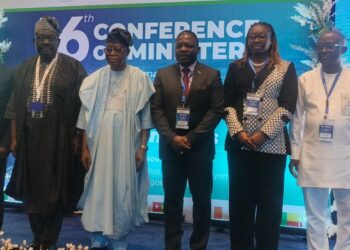Hidden behind the tragedy of the recent deadly explosion in Beirut is the more pervasive travesty of the abandonment of ships, seafarers and cargo, and unless the global public reckons with this deeper problem, a next disaster is all but inevitable.
Though Lebanese investigators say that nearby fireworks likely ignited the 2,750 tonnes of explosive ammonium nitrate, the true causes of this explosion stem from slower-moving and less dramatic factors: anaemic enforcement by shady flag registries that are supposed to hold shipowners accountable, tightened immigration controls that routinely trap stranded crews on decrepit ships, lax rules and a maritime bureaucracy designed more to protect anonymity of ship owners than to enable oversight and transparency of the industry.
These are the factors that make it so easy for vessel owners and operators to walk away from their responsibilities usually with impunity, and sometimes with life-or-death consequences for the crew that gets left behind.
While transporting the dangerous chemical, the Russian-owned ship called the Rhosus was detained by Lebanese officials in 2013 for being unseaworthy, after which the ship’s owner, Igor Grechushkin, was confronted with heavy fines, including roughly $100,000 in back wages and port fees. In response, Grechushkin did what many shipowners do. He cut his losses, declared bankruptcy, and quietly disappeared, abandoning the dilapidated ship and its deadly cargo.
Meanwhile, the Rhosus’s crew found themselves in a bind that is surprisingly common for seafarers around the world. Lacking clean water, fuel, or food, not to mention cell service, legal help or the ability to speak local language, these men had no money to get home nor even the immigration papers allowing them to disembark. While warning anyone who would listen about the dangers of the Rhosus’ cargo, several of the stranded crew waited a full year before they were able to go home with help from the International Transport Workers’ Federation (ITF), which is the largest global seafarers union.
On any given day, hundreds of ships and thousands of seafarers are in the same situation. A database created by the ITF and international labour section of UN documented roughly 400 cases involving about 5,000 seafarers who were abandoned on their vessels between 2004 and 2018.
Part of the problem is that jettisoning an old ship in port or at sea is easier and cheaper than disposing of it properly even though it creates severe hazards like the one near Manila, where an abandoned Spanish tanker is currently stranded with 15 men on board. The ship is at risk of catching fire or exploding because it is fully loaded with liquid petroleum gas but lacks enough fuel to keep the cargo refrigerated.
These risks are global when they occur at choke points. Take, for instance, the FSO Safer, a tanker full of oil , that was abandoned last year in one of the world’s busiest shipping routes along the coast of Yemen. Hit by a rocket-propelled grenade, this floating bomb could send a shudder through the global energy industry if it ground commercial traffic to a halt.
That the owner of the Rhosus in Beirut could disavow his duties so easily is partly a consequence of the distinctly transient and transnational nature of the industry. Lebanese authorities were hard pressed to arrest Grechushkin or seize his property since he lived not in Lebanon but in Cyprus, and his shipping company, Teto Shipping Ltd., was registered on the Marshall Islands.
Covid has made matters worse, stranding tens of thousands of ships and roughly 400,000 mariners at sea and in ports. “The ITF has been receiving e-mails from hundreds of seafarers daily, expressing their concern about contracts being extended under duress,” said Stephen Cotton, General Secretary of the ITF.
Port officials globally have a tough time preventing the abandonment of ships or seafarers partly because of the opaque way that the shipping industry polices itself. For centuries, the world’s merchant fleets flew the flag of the country of their home port. That country was responsible for ensuring the proper treatment of the crew and safety of the vessel. This began to change in the early 20th century with the emergence of “open registries,” also called “flags of convenience.”
The company collecting fees for the right to fly a certain flag is also responsible for policing its customers, ensuring they abide by safety, labour, and environmental rules, and conducting investigations when things go wrong. But in practice, flags of convenience create a perverse incentive for ship operators to shop around for the most lax registries with the lowest prices and fewest regulations.
The Rhosus, for instance, was flagged to Moldova, which at least since 2013 has been on a black list due to the number of times the registry’s ships have been inspected or detained, according to the Paris MoU, an organisation that monitors marine traffic.
The shipping industry has taken some productive steps, including by imposing a new rule requiring larger shipowners to carry insurance to cover the costs of sailors marooned in port.
Satellite firms like SkyTruth and KSAT have also started playing a forensic role connecting the dots between major spills, abandoned vessels, and their operators.
But until some of the privacy facilitated by flags of convenience is stripped away and all ships are required to have unique and globally standardised tracking numbers, law enforcement and port authorities will struggle to hold ship owners accountable.
Source: Gulf Times
















Discussion about this post